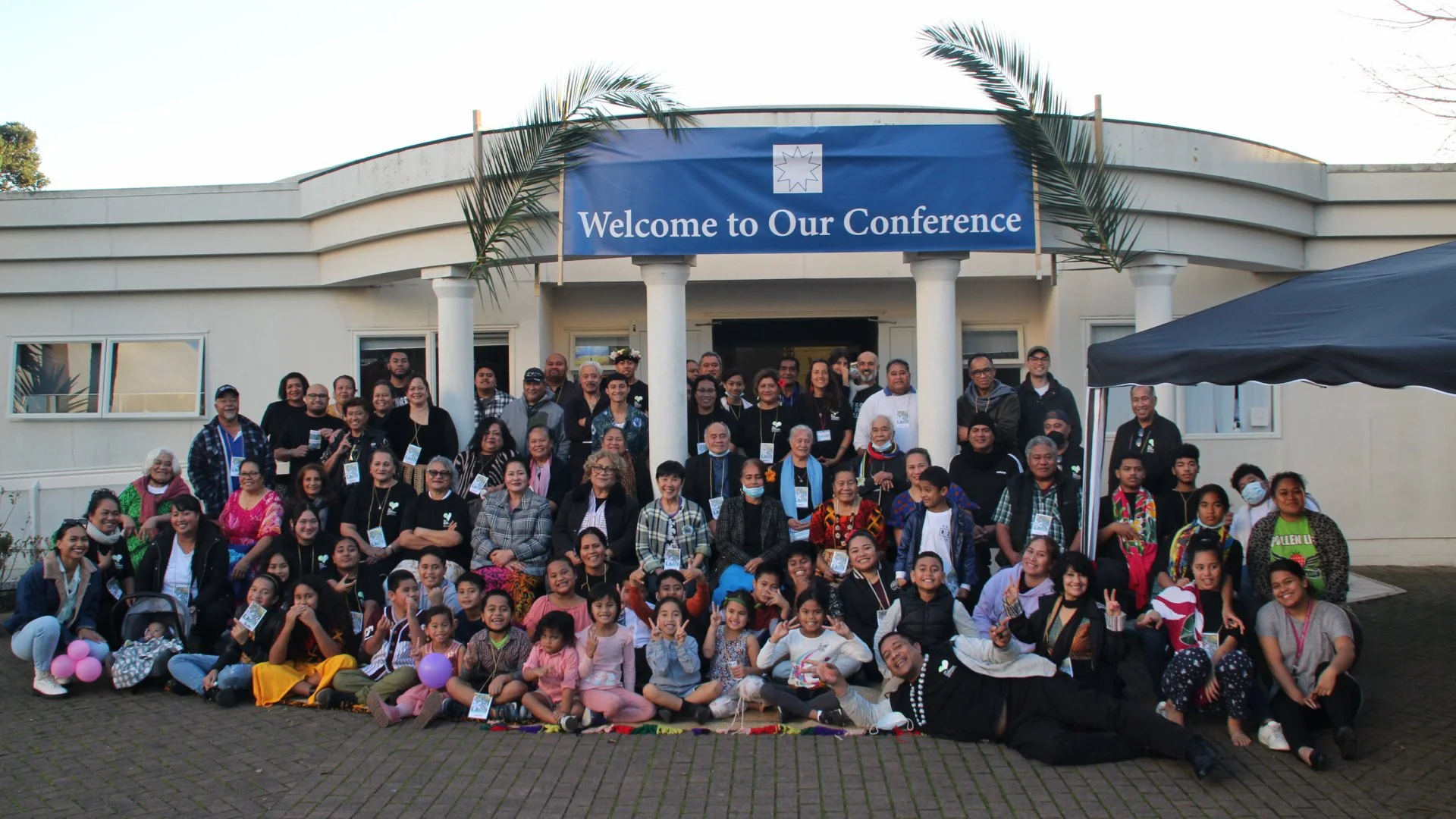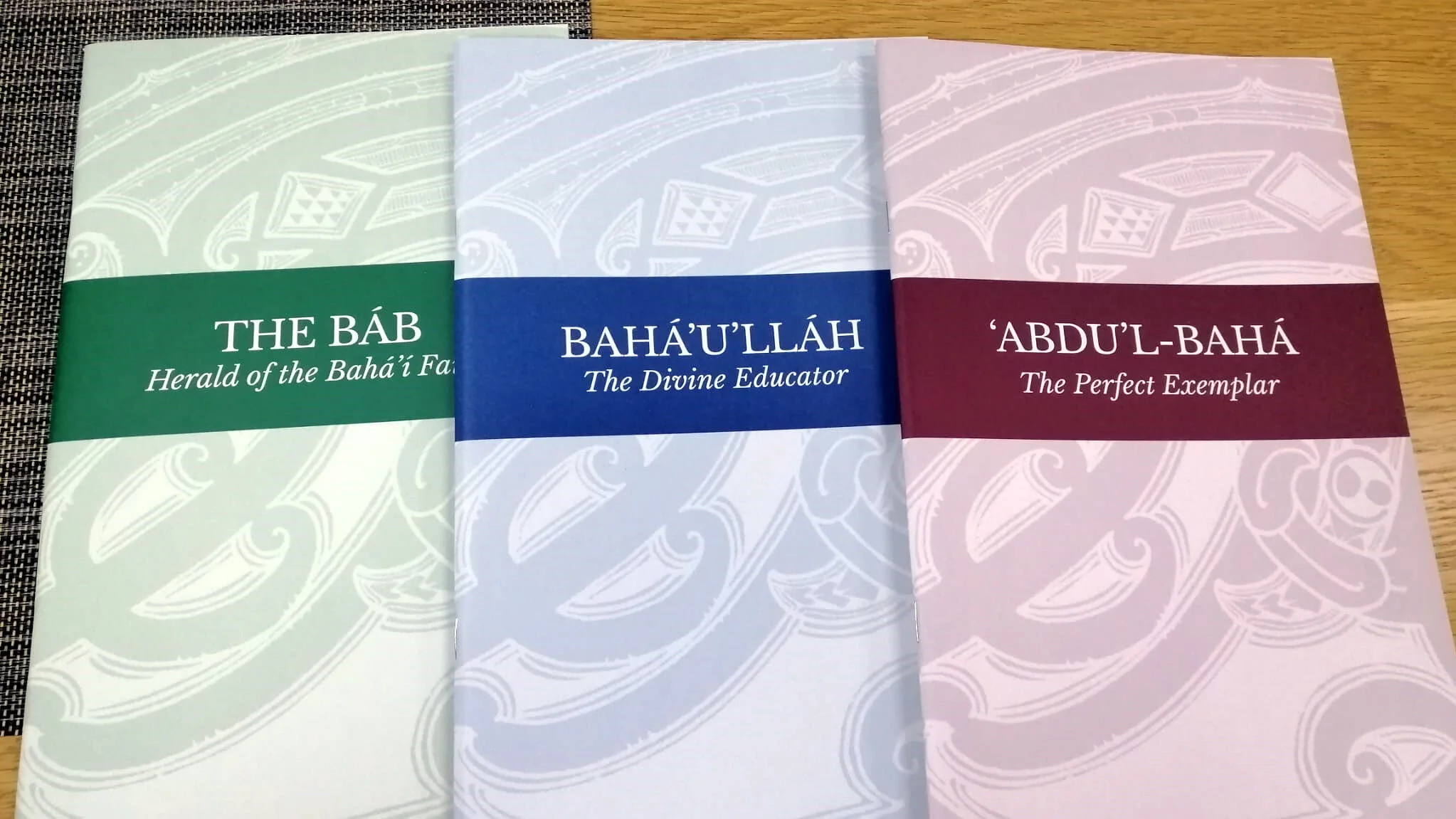Reflecting on past progress and future endeavours
An opening section titled ‘How Far We Have Come’ prefaced the National Spiritual Assembly’s Annual Report for 178 BE. The article is republished here as it offers a valuable perspective on the promising situation of our national community embarking on the Nine Year Plan, and enables us to keep the historical perspective firmly in view.
How far we have come
A perspective on the One Year Plan in the context of the previous 25 years and the years ahead.
Victories are won usually through a great deal of patience, planning and perseverance, and rarely accomplished at a single stroke. — Shoghi Effendi*
We have learned to operate within a framework of action scarcely imagined in 1996, becoming more adept at using a collection of methods and instruments that have been developed step by step in the intervening period.
The One Year Plan marked a moment charged with historic significances that are worth pausing to reflect upon, as they illuminate where we stand as we gird ourselves for challenges ahead. At Ridván 2021 the Universal House of Justice announced, “the third epoch of the Master’s Divine Plan has begun”. Clearly, the emergence of a new epoch of the Divine Plan denotes a major turning point. The first such epoch began in 1937 when the beloved Guardian inaugurated the systematic implementation of ‘Abdu’l-Bahá’s Tablets of the Divine Plan. The second epoch began in 1963, at the conclusion of the Ten Year Crusade, which had spread the Faith widely around the globe and laid the foundation for the election of the Universal House of Justice that year. Now a third epoch has arrived, the House of Justice explains, because: “The phenomenon of sizeable numbers swelling the activities of the community, catching the spark of faith and swiftly arising to serve at the leading edge of the Plan has moved from being a forecast sustained by faith to a recurring reality. Such a pronounced and demonstrable advance demands to be marked in the annals of the Cause.”
The year under review had other historic significances too. During the year, the first century of the Formative Age of the Faith came to a close with the centenary of the Ascension of ‘Abdu’l-Bahá. Furthermore, the One Year Plan was the first of a new series of Plans which will span a 25 year period. Whereas the previous 25 years had been focused on the single aim of “a significant advance in the process of entry by troops”, the new 25-year period is focused on “the release of the society-building power of the Faith in ever-greater measures”.
Bridge to a new stage
But although the One Year Plan marked the beginning of a new period, its activity was devoted in large part to the consolidation of achievements made in the last Plan — the Universal House of Justice having asked the friends in its 25 November 2020 message to “recommit your energies, keeping your focus on the mission immediately before you.” It was a time for reaching existing goals not yet attained, delayed in some cases due to the Covid-19 pandemic. The 25 November 2020 message had said that the purpose of keeping focused on the existing mission of the community was in order to prepare “for the demands to come” and to cultivate “the conditions necessary for welcoming larger and larger numbers of souls into the embrace of a community recognized for its fortitude and outward-looking orientation”. Thus, the One Year Plan provided a bridge into the new stage of activity we are now embarking upon.
The Bahá’í community of Aotearoa has made its own unique journey to the third epoch and the threshold of the Nine Year Plan. We have learned to operate within a framework of action scarcely imagined in 1996, becoming more adept at using a collection of methods and instruments that have been developed step by step in the intervening period. In a December 2021 summer school presentation, the National Assembly shared a summary of “how we did it and what we are learning”— outlining the movement towards a significant change in culture, characterised by increased systematisation and a posture of learning. [The summary is presented at the end of this article].
We have reached the culmination of setting up a framework of action that supports the process of entry by troops, and places us in readiness for the ensuing aim: releasing the society building power of the Faith. The establishment of the training institute and the concept of community building, along with complementary experience in other areas, has laid the foundation for contributing to society building on a much larger scale. In Aotearoa, the aims of the One Year Plan and areas of focus and action were conceived by the National Spiritual Assembly as set out in the diagram on page 15 [of the Annual Report]. The National Assembly’s subsequent efforts to encourage and support the institutions and the community were guided by these aims. Featured in the National Assembly’s vision of the potential in Aotearoa to befittingly honour ‘Abdu’l-Bahá were the skills and instruments acquired over a quarter century by the friends.
* From a letter written on behalf of Shoghi Effendi to the National Spiritual Assembly of Australia and New Zealand, 24 July 1955
How we did it and what we are learning
… purposeful , systematic, accelerated expansion and consolidation
… training institutes focused on generating an increasing flow of individuals endowed with the necessary capacities to sustain the process of growth
…learn by doing…
Study circles, children’s classes, devotional meetings, and later junior youth groups…portals through which youth, adults and whole families from the wider society could come into an encounter with the Revelation of Bahá’u’lláh
….work of community building within the context of the “cluster”: a geographic area of manageable size with distinct social and economic features.
A capacity for preparing simple plans at the level of the cluster …. organised into what would become three-month cycles of activity.
various principles, concepts and strategies of universal relevance to the growth process began to crystallise… distilled and refined by being applied in diverse settings over time
Elements at the level of culture…
importance of educating the younger generations …. the extraordinary potential represented by junior youth in particular
Souls assisting and accompanying one another … circle of mutual support, became the pattern …aimed at developing capacity for service
…..raising the power of meaningful conversations to kindle and fan spiritual susceptibilities.
Bahá’í communities adopting an increasingly outward-looking orientation.
Any soul responsive to the vision of the Faith can become an active participant — even a promoter and facilitator — of educational activities, meetings for worship and other elements of the community-building work
a conception of the process of entry by troops emerged that relied less on theories and assumptions and more on actual experience of how large numbers of people could find the Faith, become familiar with it, identify with its aims, join in its activities and deliberations, and in many cases embrace it
qualities of faith, perseverance and commitment with a readiness to learn… any effort to advance begins with an orientation towards learning… community has remained determined to show forbearance and learn from mistakes that naturally occur
souls who arose to open a new locality in 1996 lacked nothing for courage, faith and devotion, today their counterparts everywhere combine those same qualities with knowledge, insights and skills that are the accumulation of twenty-five years of effort by the entire Bahá’í world to systematise and refine the work of expansion and consolidation.
A more extensive review of the past 25 years and emerging endeavours was prepared for the last summer school. The presentation was described as reflections “on achievements of the last 25 years in Aotearoa in the light of the Ridván 2021 message”. You can click on the video below.
[Please remember that the national annual report for 178 BE in its entirety is available either electronically or in hard copy as a full colour booklet at no charge, upon request to the nationaloffice@bahai.org.nz






